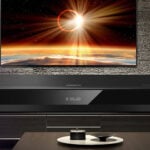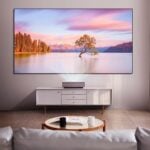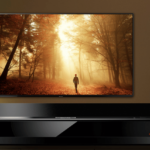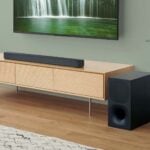Jones_Rush
Stunt Coordinator
- Joined
- Jan 19, 2001
- Messages
- 198
Since I live outside of the U.S (and not even in a country which its main language is english), I knew I could never find the right word for "Burlap". Also, the PartsExpress.com transparent fabric is too expensive for me (with shipping and taxes...).
This is why I've decided to go on a hunt for a cheap and good looking fabric which will attenuate as little as possible, up to 20khz.
I've gone to a certain street in my country, where there are dozens of fabric stores one next to the other. I've showed them the PartsExpress fabric (I have a sample of it), and told them I need a similar fabric, which will not stop the sound waves.
The sellers all used the same technique: they blew air from their lung, right into the PartsExpress fabric. Then, they searched for a fabric, which will be as easy to blow to, as the PartsExpress fabric was.
All of the fabrics they found, where kind of transparent. I've taken a few samples of the fabrics (all black) which were the most non-transparent, and when placed right against an object, could cover it completely with black.
I've went back home, and used the following method to check out the fabrics:
I've put my RS SPL meter about 50cm from my nOrh 9.0 speaker (which should be flat to 20khz). Then, I've created (using the computer) a 16khz, 18khz, and 20khz sine sweeps. I played each sine sweep one time with the fabric on the speaker (tightened with sticky paper), and one time without it. I've written the changes in SPLs.
These are the conclusions:
Unless my method of testing is faulty, the conclusion is simple: people were selling you lies for years. Acoustically Transparent fabrics are easy to find, can look very good, and are dirt cheap. With most of the fabrics I've tested, there was no SPL deviation between the time when the fabric was on the speaker, to the time it was off, up to 20khz.
Just to be sure I didn't mess the experiment, I've also taken some fabrics which it's very hard to see through (but are still pretty thin). They were definitely NOT acoustically transparent. I've measured deviations of 4-5 dB SPL, already at 16khz.
I can't believe that so many of you were suckers for the ugly Burlap, or the expensive commercial "acoustically transparent" fabrics. The sad truth is that if I had a choice to get Burlap, or the PE fabric for a lower price, I would have probably gone with it, without thinking twice.
Oh, and by the way, the PE fabric isn't totally acoustically transparent. It is about -1.5 dB at 20khz. Not that it matters that much, but still, If someone decides to pay so much for a fabric, he should at least get good performace out of it, don't you think ?.
This is why I've decided to go on a hunt for a cheap and good looking fabric which will attenuate as little as possible, up to 20khz.
I've gone to a certain street in my country, where there are dozens of fabric stores one next to the other. I've showed them the PartsExpress fabric (I have a sample of it), and told them I need a similar fabric, which will not stop the sound waves.
The sellers all used the same technique: they blew air from their lung, right into the PartsExpress fabric. Then, they searched for a fabric, which will be as easy to blow to, as the PartsExpress fabric was.
All of the fabrics they found, where kind of transparent. I've taken a few samples of the fabrics (all black) which were the most non-transparent, and when placed right against an object, could cover it completely with black.
I've went back home, and used the following method to check out the fabrics:
I've put my RS SPL meter about 50cm from my nOrh 9.0 speaker (which should be flat to 20khz). Then, I've created (using the computer) a 16khz, 18khz, and 20khz sine sweeps. I played each sine sweep one time with the fabric on the speaker (tightened with sticky paper), and one time without it. I've written the changes in SPLs.
These are the conclusions:
Unless my method of testing is faulty, the conclusion is simple: people were selling you lies for years. Acoustically Transparent fabrics are easy to find, can look very good, and are dirt cheap. With most of the fabrics I've tested, there was no SPL deviation between the time when the fabric was on the speaker, to the time it was off, up to 20khz.
Just to be sure I didn't mess the experiment, I've also taken some fabrics which it's very hard to see through (but are still pretty thin). They were definitely NOT acoustically transparent. I've measured deviations of 4-5 dB SPL, already at 16khz.
I can't believe that so many of you were suckers for the ugly Burlap, or the expensive commercial "acoustically transparent" fabrics. The sad truth is that if I had a choice to get Burlap, or the PE fabric for a lower price, I would have probably gone with it, without thinking twice.
Oh, and by the way, the PE fabric isn't totally acoustically transparent. It is about -1.5 dB at 20khz. Not that it matters that much, but still, If someone decides to pay so much for a fabric, he should at least get good performace out of it, don't you think ?.





